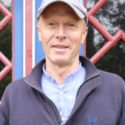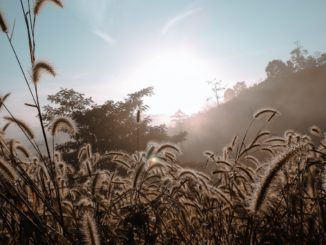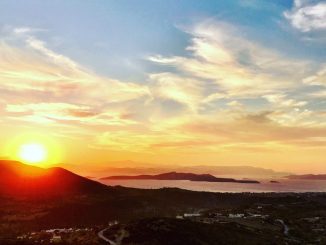
Welcome to die Ötz, a small farm in picture perfect Upper Bavaria. Letter from the farm by Hannes Lorenzen.
A postcard of rural prosperity
Cycling through this beauty of soft hills, yellow-green meadows, scattered forests, small lakes, finely carpentered wooden houses, small villages with cows and horses grazing side by side, onion-crowned church-towers and cosy guest houses, you may believe that Upper Bavaria is one of those remaining paradise places where rural culture and small peasantry has survived – or where the state of Bavaria or the European Union invested into rural prosperity – or where rural and urban lifestyle made finally peace with each other. To be honest – it’s bit of all, but also a mixed reality of a postcard landscape that is ready to become an immense golf resort one day.
A history of subsistence lifestyle

On my way to the South, I have stopped at die Ötz to visit my friend Joppel. We studied together at the Seminar for Rural Development of the Technical University of Berlin and did some rural project work together in Lesotho after that. The farm from which we right now enjoy a fabulous view of the Alps and right into the landscape as described, goes back to the 16th century. His parents bought it in 1955 as a remaining spot of a bigger farm and produced their food after the war on just three hectares, while working both part time.
Urban planning and preserving local diversity
Joppel went to school in a nearby village, later studied ecology, politics and rural development; worked as urban planner on Agenda 21 implementation at the City of Munich and as project leader on rural decentralisation in Mexico. While on the job in Munich, Joppel and is wife Rosi, a photographer and editor, continued practising part-time subsistence farming on those three hectares, with sheep, vegetable and fruit gardening and small forestry work. Even after Rosi had passed, Joppel continued this practice until today. He manages a herd of handsome Cameroon sheep which have proved to be especially fit for grazing the steep slopes and so keeping the biological diversity of the meadows alive.

Keeping hand and mind together
“We always wanted to keep hand and mind together,” he says. “We had our own food and animals close to us and here I was able to test my political and planning advice for ecological transition in practical terms. Even a small farm, especially in a mountain region, requires many skills, from forestry, woodwork, and carpentry to making hay on steep slopes, managing the herd, slaughtering, conserving food and producing energy.
“With my brother we have step by step renovated the very old farmhouse, framed the water source, established solar panels and our own heating system. All together we have saved and valued our local resources and opportunities as best as we can, but we have also preserved the great diversity of wild species of animals and plants in our meadows due to a very extensive sheep production.”

Intensive picturebook farming
In past 50 years the number of active farms in the three neighbouring villages has sunk from 20 to 4. Of the remaining four, two only keep horses for pleasure riding, using one quarter of the land of the three villages for feeding the horses. Most of the former farms have been transformed into housing for rent or sold to commuters working in Munich or other nearby cities. Only one farm is still producing milk, the other is producing hay to be sold mainly to horse owners. Permanent grassland is disappearing, intensive “agroecology” is the dominant feature, beauty backed by big money of Munich commuters and neo-rural inhabitants.

Middle class extremism
“Especially upper Bavaria has been kept wind energy turbine free, solar panels have been integrated on farms and houses, but the ambition of rural policy here is to conserve the picture of picturesque tradition including the lederhosen and dirndl appearance at any festive occasion. I like it as long as I do not have to listen to discourse which is moving from this conservative, traditional and proud of being unique to talk which moves to nationalist, extreme right, racist or anti-European behaviour. The Bavarian upper middle class conservatives living here have currently a hard time to keep a clear border line to the growing extreme right moving into the countryside,” Joppel worries.
The future is open
“I am not sure if and how our spot of subsistence farming will survive. Family and heritage have played an important role. It was not always easy, but my brother and I have kept our hands and heads together. What our two boys will do with their heritage we do not know. They like this spot of nature because they grew up here. But they live a different modern global lifestyle and see the farm more as a beautiful family history than as a lifestyle as we do. We are a spot of modern subsistence and might one day become a reference for our sons – or an ingredient of another postcard landscape.”
More letters from the farm
Letter From The Farm | A Flamenco Approach to Rural Resilience
Letter From The Farm | Cooking With The Lights Off – Ingredients of Rural Resilience
Letter From The Farm | Rural Digitalisation Remains a Hard Sell
Farm to Forms – the Epicness of Trying to Establish and Run a Farm in France
Letter From The Farm | Restoring Nature, Improving Productivity





